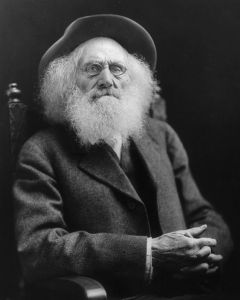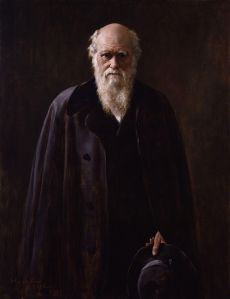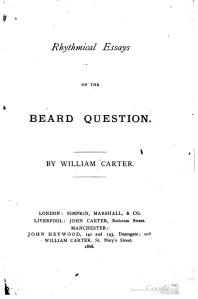In one of the supplements in the UK’s Times newspaper last weekend was a brief article making predictions in fashion for the coming year. Amongst them was suggestion (welcomed by the reviewer!) that we might finally see the end of the ‘Hipster’ beard trend. At the moment, however, there seems to be little sign of this, and the current penchant for facial topiary continues unabated. I’ve even got one myself. It’s worth mentioning that the Guardian were asking the same question in Summer 2013! http://www.theguardian.com/fashion/2013/jul/24/have-we-reached-peak-beard
But the journalist’s question does raise the interesting and important point that beards just naturally annoy some people. Perhaps the longevity of the current pogonophilic trend is partially the problem. How many men grew beards out of curiosity or perhaps for a bit of fun, then discovered that they liked them…then decided to keep them? If you are not a fan of facial hair then you are certainly not alone. For such a visible and emblematic symbol of masculinity, they have the power to be extraordinarily divisive. Even in the 19th century, when it seemed that all the world had huge beards, there were dissenting voices – even from other men.
One was William Carter of London, who fancied himself as something of a poet. In 1868, at the very height of beard fashion in Britain, Carter published his ‘Rhythmical Essays on the Beard Question’ – a set of seemingly humorous poems but often with sinister undertones!
Right from the off Carter didn’t pull his punches. The point of his work, he argued in the third line of his introduction was to ‘remove the grim vestiges of barbarity from the human face divine’. Beardless men in the early 1800s had, according to Carter, better health and were ‘noble looking, fine specimens of humanity’.
While some were arguing that beards were healthy, catching and filtering out germs, soot and smuts before they could attack the throat, Carter was unequivocal. ‘When the mental grandeur of the face is enveloped in the rude untutored animalism of savage life, health is destroyed’. Hipsters beware!
The first of his poems was a general rant against beard wearers.
‘Wherever these long-beard growers you meet/define if you CAN their boundless deceit/Could they lengthen their ears as they lengthen their hair/A cross ‘twixt an Ass and a Grizzly Bear’!

At this point things began to take a turn for the sinister, and his descriptions of beards start to feel a little less waggish! Over successive pages he vented his spleen upon facial hair in a series of quite astonishing comparisons. Some examples: In one stanza beards were ‘the rank overgrowth of a tropical soil, concealing within the miasma of death.’
The very breath of beard wearers he found disgusting. Whereas a ‘tinkling noise’ accompanied the breathing of the clean-shaven, a ‘sickening, disgusting and unpleasant sound, like the croaking of frogs which in summer abound’ was the unfortunate lot of the hirsute. Unable to breathe fresh air because of the stifling effects of their beard they were a ‘grim-looking cadaverous class who, whenever you meet them, look sickly and pale’. It’s worth mentioning at this point that we haven’t got to the end of page 3 yet!
The references to health are interesting and refer to the ongoing debates in the nineteenth century about the potential health benefits of beards. See my other posts for longer examples, but contemporary wisdom had it that beards were filters against all manner of diseases. They supposedly captured germs before they could enter the mouth and throat, and protected teeth against the acrid industrial air of the ‘modern’ city. As evidence it was put forth that miners and industrial workers grew beards, which caught all of the dust and particles that would otherwise cause damage. As a result, they were cited as some of the healthiest men in England. Other health benefits of beards were given as protection from sunburn, natural health for the skin and a means to keep warm in winter and cool in summer. None other than Charles Darwin cited his beard as his friend through cold nights while on expedition.

But others, like Carter, argued that it made no more sense to suggest that beards acted as filters than to suggest that they equally attracted dust and disease to the face, collected and kept it there. Carter even had economic arguments, suggesting that the continuation of the beard-growing trend would signal the end of the cutlery trade in England, and the ruination of eminent scientific men who had devoted their life to the art of the razor.
Carter’s other ‘poems’ covered a range of topics. One discussed the good men of the ‘great cotton shire’ of Lancashire who, in imitation of a local magnate, all refused to wear facial hair that, according to him, increased their labour and made them content. By page 27 he was back on form. If men continued to grow their beards the land would ‘sink into ruin and infamous shame/and famine diffuse its poisonous breath/producing a horrible lingering death’.
We could carry on, as Carter does, for another fifty or so pages, but we get the picture by now. Then, as now, beards were proving a contentious issue. Unluckily for Carter the Victorian beard was there for the duration, and was still a prominent feature of the male face fully thirty years after he wrote. Will the current beard trend continue through another year? Only time will tell!


Reblogged this on Cogpunk Steamscribe and commented:
I am a huge fan of beards. If my husband was to shave his off, I wouldn’t know him.
Reblogged this on beyondtheflow and commented:
As a married woman, it’s been awhile since I’ve been involved in the “Great Facial Hair Debate”. In my outh, I had a friend who I could only describe as a “beardophobe” and all but went into anaphalaxis when she met any man with a beard. I have since married one. I’m sure he will find this post most interesting and he can add these health benefits to his repertoire of justifications for his beard.
Excellent – thanks so much, and glad you enjoyed it.